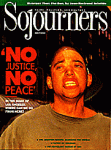The story is unfortunately all too familiar: As many as 23 million people in Ethiopia, Sudan, Somalia, and the rest of the Horn of Africa are threatened by starvation. The root causes, too, are well-known: not only a lack of rain, but also militarism, war, poverty, corruption, and short-sighted government policies. Humanitarian organizations have warned that the current famine could be worse than that of 1984-85, during which a million people died - especially if "compassion fatigue" prevents the outside world from adequate response.
In the midst of the region's anguish, however, small glimmers of hope are beginning to emerge - even, perhaps, for countries such as Somalia, which a U.S. State Department official described as "the most acute humanitarian tragedy in the world today." Civil war in the northeast-African state has claimed as many as 40,000 lives in recent months and prevented much-needed foreign assistance from reaching hungry people.
In early May, a short-term truce enabled the first major shipment of relief food in five months to reach Mogadishu, Somalia's capital. The International Red Cross and U.N. relief agencies have taken the unprecedented action of hiring thousands of armed guards from opposing factions in the civil war in an attempt to ensure that the aid reaches those most in need.
The U.N. Security Council voted to explore sending an international peacekeeping force to separate the sides in the Somalian conflict and allow outside assistance to flow. The effort, however, was weakened by the United States, which raised concerns about the cost of the operation. African diplomats accused the United States of having a double standard for supporting peacekeeping operations in Yugoslavia while avoiding them in Somalia.
Meanwhile, Congress enacted in mid-April a law aimed at long-term solutions to the recurring famines in the region. The "Horn of Africa Recovery and Food Security Act," according to its supporters, directs future U.S. assistance away from military purposes and into grassroots programs for the poor, prohibits aid to repressive regimes, and instructs the U.S. government to support U.N. peacemaking and relief efforts.
Jim Rice is editor of Sojourners. Chris Herman assisted with research.

Got something to say about what you're reading? We value your feedback!
